|
Books Should Be Free Loyal Books Free Public Domain Audiobooks & eBook Downloads |
|
|
Books Should Be Free Loyal Books Free Public Domain Audiobooks & eBook Downloads |
|
Non-fiction |
|---|
|
Book type:
Sort by:
View by:
|
By: William F. Cody | |
|---|---|
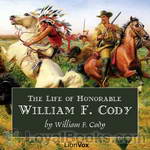 The Life of Honorable William F. Cody
The Life of Honorable William F. Cody
The life and adventures of Honorable William F. Cody–Buffalo Bill–as told by himself, make up a narrative which reads more like romance than reality, and which in many respects will prove a valuable contribution to the records of our Western frontier history. While no literary excellence is claimed for the narrative, it has the greater merit of being truthful, and is verified in such a manner that no one can doubt its veracity. The frequent reference to such military men as Generals Sheridan, Carr, Merritt, Crook, Terry, Colonel Royal, and other officers under whom Mr... | |
By: Margaret Warner Morley (1858-1923) | |
|---|---|
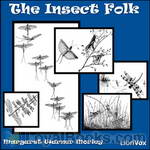 The Insect Folk
The Insect Folk
Through delightful outings with her students, a teacher introduces her class to the fascinating world of insects. She encourages her students to observe and ask questions. This is a wonderful science text for young children. | |
By: Cornelia Mee | |
|---|---|
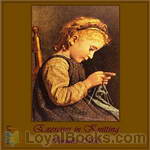 Exercises in Knitting
Exercises in Knitting
Mrs. Mee, her husband, and her sister ran a yarn and needlework import/warehouse business in Bath, England. Her books primarily contain practical everyday items that knit up quickly with the busy homemaker in mind. At this time, published knitting “receipts” did not contain abbreviations and were laborious to use. They were, however, rich in error! Later in her career, due to circumstances of war and the resulting social stress and poverty, many of her knitting books were printed for ladies’ charitable societies, which used her knitting “receipts” to clothe the poor mill workers who were out of work due to the American Civil War and the embargo of cotton. | |
By: Isabella L. Bird | |
|---|---|
 The Englishwoman in America
The Englishwoman in America
Isabella Bird travels abroad in Canada and the United States in the 1850s. As an Englishwoman and a lone female, she travels as far as Chicago, Prince Edward Island, and Cincinatti. Her observations on the trials and tribulations of the journeys are astute, if formed by her place and time in history. Adventures with pickpockets, omnibuses, cholera, and rat invested hotels deter her not. (Sibella Denton) | |
By: George L. Apperson (1857-1937) | |
|---|---|
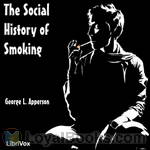 The Social History of Smoking
The Social History of Smoking
This work tells the history of smoking in England from the social point of view. Thus it does not deal with the history of tobacco growing or tobacco related manufacture, but is rather the story of how smoking has fitted in with the fashions and customs throughout the ages, and the changes in the attitude of society towards smoking. | |
By: Anna Harriette Leonowens | |
|---|---|
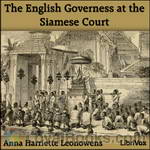 The English Governess at the Siamese Court
The English Governess at the Siamese Court
1862 Anna Leonowens accepted an offer made by the Siamese consul in Singapore, Tan Kim Ching, to teach the wives and children of Mongkut, king of Siam. The king wished to give his 39 wives and concubines and 82 children a modern Western education on scientific secular lines, which earlier missionaries’ wives had not provided. Leonowens sent her daughter Avis to school in England, and took her son Louis with her to Bangkok. She succeeded Dan Beach Bradley, an American missionary, as teacher to the Siamese court... | |
By: Eliza P. Donner Houghton (1843-1922) | |
|---|---|
 The Expedition of the Donner Party and Its Tragic Fate
The Expedition of the Donner Party and Its Tragic Fate
The Donner Party was a group of California-bound American settlers caught up in the “westering fever” of the 1840s. After becoming snowbound in the Sierra Nevada in the winter of 1846–1847, some of the emigrants resorted to cannibalism. Although this aspect of the tragedy has become synonymous with the Donner Party in the popular imagination, it actually was a minor part of the episode. The author was about 4 at the time. The first part of the book accounts the tragic journey and rescue attempts; the last half are reminiscences of the child orphan, passed from family to family while growing up. | |
By: Anonymous, attributed to Kathleen Luard (c.1872) | |
|---|---|
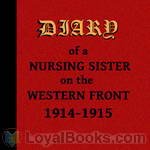 Diary of a Nursing Sister on the Western Front 1914-1915
Diary of a Nursing Sister on the Western Front 1914-1915
The title is, I think, self explanatory. The nurse in question went out to France at the beginning of the war and remained there until May 1915 after the second battle of Ypres when she went back to a Base Hospital and the diary ceases. Although written in diary form, it is clearly taken from letters home and gives a vivid if sometimes distressing picture of the state of the casualties occasioned during that period. After a time at the General Hospital in Le Havre she became one of the three or four sisters working on the ambulance trains which fetched the wounded from the Clearing Hospitals close to the front line and took them back to the General Hospitals in Boulogne, Rouen and Le Havre. | |
By: Library of Congress. Copyright Office | |
|---|---|
 Copyright Basics
Copyright Basics
| |
 Reproduction of Copyrighted Works By Educators and Librarians
Reproduction of Copyrighted Works By Educators and Librarians
| |
 Supplementary Copyright Statutes, US Copy. Office
Supplementary Copyright Statutes, US Copy. Office
| |
By: Dorothy Quigley | |
|---|---|
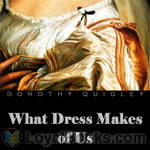 What Dress Makes of Us
What Dress Makes of Us
A wickedly funny book of advice on women’s dress. However old, fat or plain you are, Dorothy Quigley will tell you what not to wear. | |
By: Edmund Gosse (1849-1928) | |
|---|---|
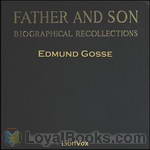 Father and Son
Father and Son
Father and Son (1907) is a memoir by poet and critic Edmund Gosse, which he subtitled “a study of two temperaments.” The book describes Edmund’s early years in an exceptionally devout Plymouth Brethren home. His mother, who dies early and painfully of breast cancer, is a writer of Christian tracts. His father, Philip Henry Gosse, is an influential, though largely self-taught, invertebrate zoologist and student of marine biology who, after his wife’s death, takes Edmund to live in Devon... | |
 Gossip in a Library
Gossip in a Library
A collection of informal essays about books in his library. He combines commentary, translations, and humorous asides about authors and their subjects. | |
By: Bliss Perry (1860-1954) | |
|---|---|
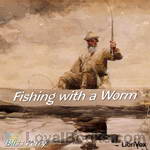 Fishing with a Worm
Fishing with a Worm
Fishing with a Worm by Bliss Perry includes the poignant and philisophical observations of a fly fisherman lured by the worm. Bliss Perry was a professor of literature at Princeton and Harvard Universities and spent time in Vermont writing and fly fishing. | |
By: Victor Appleton | |
|---|---|
 Tom Swift and His Sky Racer
Tom Swift and His Sky Racer
A $10,000 prize lures Tom into competing at a local aviation meet at Eagle Park. Tom is determined to build the fastest plane around, but his plans mysteriously disappear, which means Tom must redesign his new airplane from the beginning. | |
By: Chalkley J. Hambleton | |
|---|---|
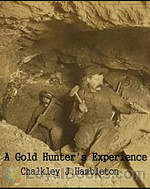 A Gold Hunter's Experience
A Gold Hunter's Experience
“Early in the summer of 1860, I had an attack of gold fever. In Chicago, the conditions for such a malady were all favorable. Since the panic of 1857 there had been three years of general depression, money was scarce, there was little activity in business, the outlook was discouraging, and I, like hundreds of others, felt blue.” Thus Chalkley J. Hambleton begins his pithy and engrossing tale of participation in the Pike’s Peak gold rush. Four men in partnership hauled 24 tons of mining equipment by ox cart across the Great Plains from St... | |
By: Havelock Ellis (1859-1939) | |
|---|---|
 Studies in the Psychology of Sex, Volume One
Studies in the Psychology of Sex, Volume One
The first of six volumes, this volume covers in extensive detail the topics of "The Evolution of Modesty", "The Phenomena of Sexual Periodicity", and "Auto-Eroticism". Written as an anthropological and psychological study from the point of view of Havelock, the famous British sexologist of the late 19th century, who was also a physician and social reformer. | |
By: Fabian Franklin | |
|---|---|
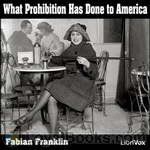 What Prohibition Has Done to America
What Prohibition Has Done to America
In What Prohibition Has Done to America, Fabian Franklin presents a concise but forceful argument against the Eighteenth Amendment of the U.S. Constitution. Beginning in 1920, this Amendment prohibited the sale and manufacture of alcoholic beverages in the United States, until it was repealed in 1933. Franklin contends that the Amendment “is not only a crime against the Constitution of the United States, and not only a crime against the whole spirit of our Federal system, but a crime against the first principles of rational government... | |
By: James E. Talmage | |
|---|---|
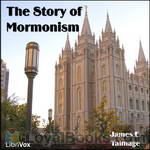 The Story of Mormonism
The Story of Mormonism
A few years before James E. Talmage was called to serve as an apostle for the Church of Jesus Christ of Latter-day Saints (also known as the "Mormon" church), he gave a series of lectures at universities such as the University of Michigan and Cornell, describing the history of the Church. These lectures were later compiled and published as 'The Story of "Mormonism."' It is a concise, yet informative summary for all interested in learning the history and beliefs of the "Mormon" church. (Summary by Nathan Markham) | |
By: Ferdinand Ossendowski (1876-1945) | |
|---|---|
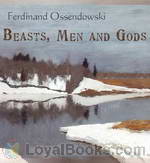 Beasts, Men and Gods
Beasts, Men and Gods
“Beasts, Men and Gods” is an account of an epic journey, filled with perils and narrow escapes, in the mold of “The Lord of the Rings.”The difference is: it’s all true.Ferdinand Ossendowski was a Pole who found himself in Siberia and on the losing side during the Bolshevik Revolution. To escape being rounded up and shot, he set out with a friend to reach the Pacific, there to take ship back to Europe. During his journey he fell in with dozens of other military men who shared the same objective… but nearly every one of them perished on the way... | |
By: Henry Ford | |
|---|---|
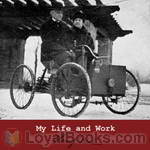 My Life and Work
My Life and Work
Henry Ford profiles the events that shaped his personal philosophy, and the challenges he overcame on the road to founding the Ford Motor Company. Throughout his memoir, he stresses the importance of tangible service and physical production over relative value as judged by profits and money. He measures the worth of a business or government by the service it provides to all, not the profits in dollars it accumulates. He also makes the point that only service can provide for human needs, as opposed to laws or rules which can only prohibit specific actions and do not provide for the necessaries of life... | |
By: Ida Coe and Alice Christie (1876-?) | |
|---|---|
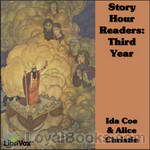 Story Hour Readers: Third Year
Story Hour Readers: Third Year
Short and sweet stories for children from the 19th century. The stories were compiled by two New York City teachers and were thought appropriate for third year children at that time. | |
By: Kate Percival | |
|---|---|
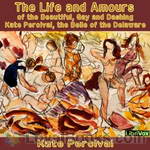 The Life and Amours of the Beautiful, Gay and Dashing Kate Percival, the Belle of the Delaware
The Life and Amours of the Beautiful, Gay and Dashing Kate Percival, the Belle of the Delaware
This surprisingly explicit sample of Victorian erotica follows the sexual awakening and subsequent adventures of its author, Kate Percival, the "belle of the Delaware." Content warning: this one is definitely NC-17 rated. | |
By: Mary Rowlandson (c.1637-1711) | |
|---|---|
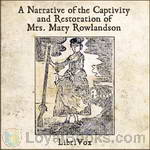 A Narrative of the Captivity and Restoration of Mrs. Mary Rowlandson
A Narrative of the Captivity and Restoration of Mrs. Mary Rowlandson
This is the story of Mary Rowlandson’s capture by American Indians in 1675. It is a blunt, frightening, and detailed work with several moments of off-color humor. Mary, the wife of a minister, was captured by Natives during King Philips War while living in a Lancaster town, most of which was decimated, and the people murdered. See through her eyes, which depict Indians as the instruments of Satan. Her accounts were a best-seller of the era, and a seminal work, being one of the first captivity narratives ever published by a woman... | |
By: J. Walker McSpadden (1874-1960) | |
|---|---|
 Boys' Book of Famous Soldiers
Boys' Book of Famous Soldiers
These 12 stories give a personal portrait of twelve famous soldiers from the past two centuries. Each story explores the early life of the solder —to trace his career up from boyhood through the formative years. Such data serves to explain the great soldier of later years. Summary compiled from the preface of the book. (Summary by philchenevert) | |
By: Helen M. Winslow | |
|---|---|
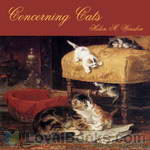 Concerning Cats
Concerning Cats
“I have known, and loved, and studied many cats, but my knowledge of her (Pretty Lady, a cat) alone would convince me that cats love people–in their dignified, reserved way, and when they feel that their love is not wasted; that they reason, and that they seldom act from impulse.” The thoughts of Helen Winslow, a thoughtful and articulate cat friend, about the cats in her life. | |
By: Jennie Ellis Keysor | |
|---|---|
 Great Artists
Great Artists
Biographies of Raphael Santi, Murillo, Peter Paul Rubens, and Albrecht Durer. This is a wonderful tool for art study as there are references for further study, as well as ideas for language arts to incorporate into the study. | |
By: Robert Michael Ballantyne (1825-1894) | |
|---|---|
 Man on the Ocean A Book about Boats and Ships
Man on the Ocean A Book about Boats and Ships
| |
 Battles with the Sea
Battles with the Sea
| |
 Up in the Clouds Balloon Voyages
Up in the Clouds Balloon Voyages
| |
By: John S. C. Abbott (1805-1877) | |
|---|---|
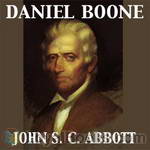 Daniel Boone
Daniel Boone
This is a detailed biography of the life and adventures of Daniel Boone. His accomplishments are brushed over in history classes these days and not given the recognition they deserve. This biography clearly paints a picture of the benevolent person of Daniel Boone as well as the achievements he made in furthering European settlement in America. | |
By: Mrs. Isabella Beeton (1836-1865) | |
|---|---|
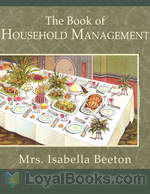 The Book of Household Management
The Book of Household Management
“Mrs. Beeton’s” is a guide to all aspects of running a household in Victorian Britain. Published in 1861, it was an immediate bestseller, running to millions of copies within just a few years. In the cookery sections, Mrs. Beeton follows the animal “from his birth to his appearance on the table.” Learn how to care for poultry during moulting season, how to wean calves, how to cure hams, salt cod, carve mutton, and much more. | |
By: United States Office of Strategic Services | |
|---|---|
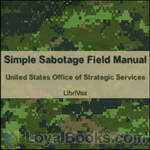 Simple Sabotage Field Manual
Simple Sabotage Field Manual
Formed during World War II, the United States Office of Strategic Services (OSS), was organized for special operations and intelligence gathering and analysis. Included in its mission was the implementation of, and training of foreign forces in, propaganda, espionage, subversion, and sabotage. After the war, OSS functions were transferred to the newly formed Central Intelligence Agency (CIA). This “Simple Sabotage Field Manual” was used by OSS agents in training “citizen-saboteurs” in methods for inciting and executing simple sabotage to thwart industry and other vital functions in Axis-occupied areas. | |
By: Goldsworthy Lowes Dickinson (1862-1932) | |
|---|---|
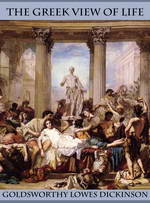 The Greek View of Life
The Greek View of Life
“With the Greek civilisation beauty perished from the world. Never again has it been possible for man to believe that harmony is in fact the truth of all existence.”This elegantly-written work provides a splendid introduction to the Greeks of the classic period: how they thought, wrote, and organised their lives and loves. Although it dates from the 1890s, there is very little about it that has dated. To its author’s credit, the subject of “Greek love” is dealt with in a sane and factual context - despite the judicial assassination of Oscar Wilde going on in the background... | |
By: Antonio Colmenero de Ledesma (d. 17th century) | |
|---|---|
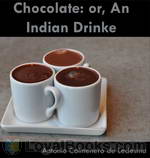 Chocolate: or, An Indian Drinke
Chocolate: or, An Indian Drinke
The Author sings the praises of Chocolate. “By the wise and Moderate use whereof, Health is preserved, Sicknesse Diverted, and Cured, especially the Plague of the Guts; vulgarly called _The New Disease_; Fluxes, Consumptions, & Coughs of the Lungs, with sundry other desperate Diseases. By it also, Conception is Caused, the Birth Hastened and facilitated, Beauty Gain’d and continued.” | |
By: Robert Leighton | |
|---|---|
 Dogs and All About Them
Dogs and All About Them
This comprehensive guide on dog-rearing looks at dogs as more than just pets - as people's best friends. The author describes each breed of dog in a detailed and systematic way, with complete notes on show-dogs. | |
By: United States Rubber Company | |
|---|---|
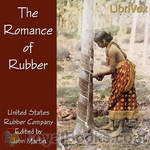 The Romance of Rubber
The Romance of Rubber
This pamphlet was published in the early 20th century by the United States Rubber Company so that “coming generations of our country … have some understanding of the importance of rubber in our every day life… We believe the rubber industry will be better off if the future citizens of our country know more about it.” Learn about Christopher Columbus’s discovery of rubber, how the crafty British entrepreneur, Wickham, managed to smuggle rubber seedlings out of Brazil, and how rubber manufacturing came to be a “peculiarly American industry... | |
By: Giorgio Vasari (1511-1574) | |
|---|---|
 Lives of the Most Eminent Painters, Sculptors and Architects
Lives of the Most Eminent Painters, Sculptors and Architects
The Lives of the Most Excellent Italian Painters, Sculptors, and Architects, from Cimabue to Our Times, or Le Vite delle più eccellenti pittori, scultori, ed architettori, as it was originally known in Italian, is a series of artist biographies written by 16th century Italian painter and architect Giorgio Vasari, which is considered "perhaps the most famous, and even today the most- read work of the older literature of art", "some of the Italian Renaissance's most influential writing on art", and "one of the founding texts in art history"... | |
By: Helen Rowland (1875-1950) | |
|---|---|
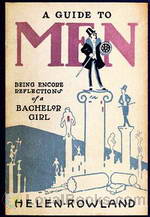 A Guide to Men: Being Encore Reflections of a Bachelor Girl
A Guide to Men: Being Encore Reflections of a Bachelor Girl
A series of occasionally witty one-liners, poems and considerations on the subject of Men, Women and their Conjunction. By turns tender, bland, sexist (in both directions!) and funny. | |
By: Frances M. A. Roe | |
|---|---|
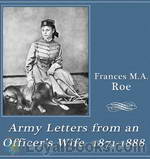 Army Letters from an Officer's Wife, 1871-1888
Army Letters from an Officer's Wife, 1871-1888
"There appeared from the bushes in front of me, and right in the path, two immense gray wolves . . . Rollo saw them and stopped instantly, giving deep sighs, preparing to snort, I knew . . . To give myself courage, I talked to the horse, slowly turning him around . . . when out of the bushes in front of us, there came a third wolf! The situation was not pleasant and without stopping to think, I said ‘Rollo, we must run him down - now do your best’ and taking a firm hold of the bridle, and bracing myself in the saddle, I struck the horse with my whip and gave an awful scream... | |
By: Francis Parkman | |
|---|---|
 Pioneers of France in the New World
Pioneers of France in the New World
Francis Parkman (1823-1893) has been hailed as one of America’s first great historians and as a master of narrative history. Numerous translations have spread the books around the world. The American writer and literary critic Edmund Wilson (1895-1972) in his book O Canada (1965), described Parkman’s France and England in North America in these terms: The clarity, the momentum and the color of the first volumes of Parkman’s narrative are among the most brilliant achievements of the writing of history as an art... | |
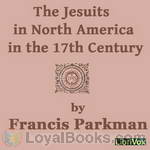 The Jesuits in North America in the 17th Century
The Jesuits in North America in the 17th Century
Parkman has been hailed as one of America's first great historians and as a master of narrative history. Numerous translations have spread the books around the world. The American writer and literary critic Edmund Wilson (1895-1972) in his book "O Canada" (1965), described Parkman’s France and England in North America in these terms: "The clarity, the momentum and the color of the first volumes of Parkman’s narrative are among the most brilliant achievements of the writing of history as an art... | |
By: Austin Craig | |
|---|---|
 Lineage, Life and Labors of Jose Rizal
Lineage, Life and Labors of Jose Rizal
LINEAGE LIFE AND LABORS of JOSE RIZAL PHILIPPINE PATRIOTBY AUSTIN CRAIGINTRODUCTION In writing a biography, the author, if he be discriminating, selects, with great care, the salient features of the life story of the one whom he deems worthy of being portrayed as a person possessed of preeminent qualities that make for a character and greatness. Indeed to write biography at all, one should have that nice sense of proportion that makes him instinctively seize upon only those points that do advance his theme... | |
By: Henry W. Lucy (1845-1924) | |
|---|---|
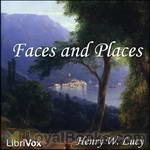 Faces and Places
Faces and Places
Faces and Places is a collection of articles on nineteenth century travel, events and personalities by the British journalist Henry Lucy, who wrote for the Daily News, a London newspaper. His open letter To Those About to Become Journalists rings as true today as when it was written.The first article, “Fred” Burnaby, includes a lively account of a balloon trip, while Night and Day on the Cars in Canada and Easter on Les Avants relate Lucy’s experiences of rail travel at that time. Other travel tales (A Night on a Mountain, Mosquitoes and Monaco, and Oysters and Arcachon) provide an insight into the Victorian Englishman’s attitude to Europe... | |
By: William T. Hornaday (1854-1937) | |
|---|---|
 Our Vanishing Wild Life
Our Vanishing Wild Life
We are weary of witnessing the greed, selfishness and cruelty of “civilized” man toward the wild creatures of the earth. We are sick of tales of slaughter and pictures of carnage. It is time for a sweeping Reformation; and that is precisely what we now demand. -William Temple Hornaday | |
By: Mary H. Kingsley | |
|---|---|
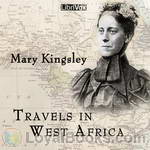 Travels in West Africa
Travels in West Africa
Mary Henrietta Kingsley (13 October 1862 – 3 June 1900) was an British explorer and writer who greatly influenced European ideas about Africa and its people. Kingsley was an outspoken critic of European colonialism, a champion for indigenous customs, and a dedicated campaigner for a revised British policy which supported traders and merchants over the needs of settlers and missionaries. Her adventures were extraordinary and fascinating. Among other things she fought with crocodiles, fell into native spear traps and was caught in a tornado on the slopes of Mount Cameroon... | |
By: Ellen Clacy | |
|---|---|
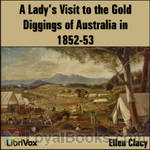 A Lady's Visit to the Gold Diggings of Australia in 1852-53,
A Lady's Visit to the Gold Diggings of Australia in 1852-53,
“If you have visions of a middle-aged parasol-bearing lady smiling sweetly from her carriage as she tours Bendigo think again. In 1852, 20 year old clergyman’s daughter Ellen and her brother boarded ship for Melbourne then set off to walk to Bendigo. Dressed in her blue serge skirt which doubled as nightwear, she camped under a tent made of blankets, had mutton, damper and tea most meals and on arrival lent her hand to gold washing. And seemed to enjoy it !And amongst other things she tells of colonial life , transportation, emigration and other gold-fields.But you will need to listen to hear more about bush-rangers and orphans as well as what she did with her parasol.” | |
By: Ontario Ministry of Education | |
|---|---|
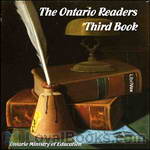 The Ontario Readers Third Book
The Ontario Readers Third Book
The Ontario Readers is a school book first published in 1909, by the Ontario Ministry of Education, containing short excerpts of literary works, both stories and poems, geared to grade-school age children. | |
By: Henry L. Williams | |
|---|---|
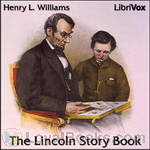 The Lincoln Story Book
The Lincoln Story Book
The Abraham Lincoln Statue at Chicago is accepted as the typical Westerner of the forum, the rostrum, and the tribune, as he stood to be inaugurated under the war-cloud in 1861. But there is another Lincoln as dear to the common people–the Lincoln of happy quotations, the speaker of household words. Instead of the erect, impressive, penetrative platform orator we see a long, gaunt figure, divided between two chairs for comfort, the head bent forward, smiling broadly, the lips curved in laughter, the deep eyes irradiating their caves of wisdom; the story-telling Lincoln, enjoying the enjoyment he gave to others. (from the preface of the book) | |
By: Florence Nightingale (1820-1910) | |
|---|---|
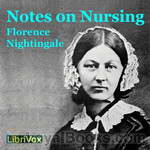 Notes on Nursing
Notes on Nursing
Notes on Nursing was published in 1859 and is a fascinating view into the theories underpinning the early development of modern nursing and public health reform by "the Lady with the Lamp", Florence Nightingale. Emphasising common sense and thought for the patient's care in many more ways than just administering physician-prescribed medicines, this is still a very relevant book for those interested in health or caring for the sick and infirm today.Summary by Cori Samuel. | |
By: Isaac Newton (1642-1727) | |
|---|---|
 Opticks
Opticks
The famous physicist Sir Isaac Newton lectured on optics from 1670 - 1672. He worked on the refraction of light into colored beams using prisms and discovered chromatic aberration. He also postulated the corpuscular form of light and an ether to transmit forces between the corpuscles. His "Opticks", first published 1704 contains his postulates about the topic. This is the fourth edition in English, from 1730, which Newton corrected from the third edition before his death. | |
By: Thomas R. Malthus (1766-1834) | |
|---|---|
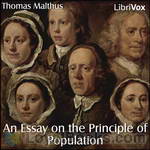 An Essay on the Principle of Population
An Essay on the Principle of Population
The power of population is indefinitely greater than the power in the earth to produce subsistence for man. Population, when unchecked, increases in a geometrical ratio. Subsistence increases only in an arithmetical ratio. A slight acquaintance with numbers will show the immensity of the first power in comparison with the second (Malthus). | |
By: Charles Alexander Eastman (1858-1939) | |
|---|---|
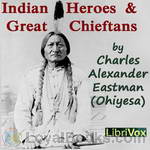 Indian Heroes and Great Chieftans
Indian Heroes and Great Chieftans
EVERY age, every race, has its leaders and heroes. There were over sixty distinct tribes of Indians on this continent, each of which boasted its notable men. The names and deeds of some of these men will live in American history, yet in the true sense they are unknown, because misunderstood. I should like to present some of the greatest chiefs of modern times in the light of the native character and ideals, believing that the American people will gladly do them tardy justice. | |
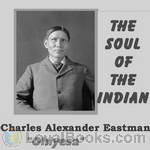 The Soul of the Indian
The Soul of the Indian
"We also have a religion which was given to our forefathers, and has been handed down to us their children. It teaches us to be thankful, to be united, and to love one another! We never quarrel about religion." | |
By: William Harmon Norton (1856-1944) | |
|---|---|
 The Elements of Geology
The Elements of Geology
Geology is a science of such rapid growth that no apology is expected when from time to time a new text-book is added to those already in the field. The present work, however, is the outcome of the need of a text-book of very simple outline, in which causes and their consequences should be knit together as closely as possible,—a need long felt by the author in his teaching, and perhaps by other teachers also. The author has ventured, therefore, to depart from the common usage which subdivides... | |
By: William Westgarth (1815-1889) | |
|---|---|
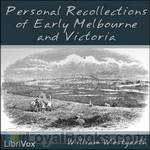 Personal Recollections of Early Melbourne and Victoria
Personal Recollections of Early Melbourne and Victoria
Son of John Westgarth, surveyor-general of customs for Scotland, was born at Edinburgh, in June 1815. He was educated at the high schools at Leith and Edinburgh, and at Dr Bruce’s school at Newcastle-on-Tyne. He then entered the office of G. Young and Company of Leith, who were engaged in the Australian trade, and realizing the possibilities of the new land, decided to emigrate to Australia. He arrived in Melbourne, then a town of three or four thousand inhabitants, in December 1840.When the new colony was constituted Westgarth headed the poll for Melbourne at the election for the legislative council... | |
By: Captain Rees Howell Gronow (1794-1865) | |
|---|---|
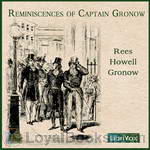 Reminiscences of Captain Gronow
Reminiscences of Captain Gronow
A collection of memoirs about the Peninsular War, the Battle of Waterloo, and society and personalities of Regency London and 19th century Paris, by a sometime Grenadier Guards officer, unsuccessful parliamentarian, and dandy. Gronow displays social attitudes of the day which would now be regarded as unacceptable, but is a clever raconteur who brings to life both the horrors of war and the gaiety of high society. | |
By: Charles Dudley Warner (1829-1900) | |
|---|---|
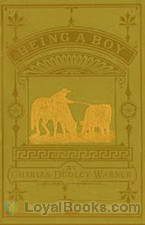 Being a Boy
Being a Boy
Warner's thoughtful and often humorous memoir of his life as a young farm-boy in Charlemont, Massachusetts. (Introduction by Mark Penfold) | |
By: Thorstein Veblen (1857-1929) | |
|---|---|
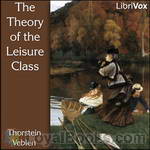 The Theory of the Leisure Class
The Theory of the Leisure Class
Originally published by the Norwegian-American economist Thorstein Veblen while he was a professor at the University of Chicago in 1898, the Theory of the Leisure Class is considered one of the great works of economics as well as the first detailed critique of consumerism. In the book, Veblen argues that economic life is driven not by notions of utility, but by social vestiges from pre-historic times. [Summary modified from Wikipedia.] | |